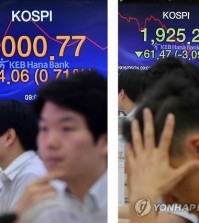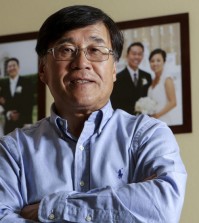- California Assembly OKs highest minimum wage in nation
- S. Korea unveils first graphic cigarette warnings
- US joins with South Korea, Japan in bid to deter North Korea
- LPGA golfer Chun In-gee finally back in action
- S. Korea won’t be top seed in final World Cup qualification round
- US men’s soccer misses 2nd straight Olympics
- US back on track in qualifying with 4-0 win over Guatemala
- High-intensity workout injuries spawn cottage industry
- CDC expands range of Zika mosquitoes into parts of Northeast
- Who knew? ‘The Walking Dead’ is helping families connect
Fewer Seoulites marry in recent years: data

(Courtesy of Samuel Yoo via Flickr/Creative Commons)
SEOUL, May 4 (Yonhap) — The number of couples marrying in Seoul has dropped nearly 40 percent from more than two decades ago, a study showed Monday, as more people delay their marriages.
Last year, 65,000 couples tied the knot in Seoul, down 37.6 percent from 1990, according to data posted on the website of the Seoul Institute, a think tank run by the Seoul Metropolitan Government.
Men’s average age at first marriage climbed from 28.6 in 1994 to 32.8 in 2014.
Women also delayed their first marriage from an average age of 25.8 to 30.7 in the same period.
The finding represents South Koreans’ trend of delaying or swearing off marriages in recent decades. Seoul is home to more than 10 million people, about one-fifth of South Korea’s population.
The number of South Koreans tying the knot in 2014 fell for the third straight year to 305,000, official data showed.
This translates into lower birth rates, which South Korea has seen enough of in recent years.
In 2014, the birth rate remained at the historic low of 8.6 live births per 1,000 people for the second straight year.
Even by absolute terms, South Koreans gave birth to 435,300 babies last year, the second lowest since the data were first collected in 1970.
The results intensify concerns that falling birth rates would stem South Korea’s growth potential since fewer young people will be able to support a growing number of senior citizens.
Last year, South Korea had the fastest aging population among the Organization for Economic Cooperation and Development, a group of 34 mostly rich nations.















